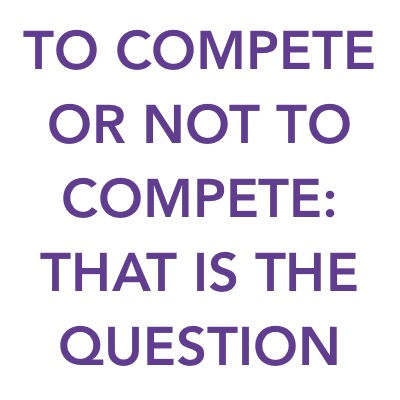 TO COMPETE OR NOT TO COMPETE: THAT IS THE QUESTION (part 1 of 3)
TO COMPETE OR NOT TO COMPETE: THAT IS THE QUESTION (part 1 of 3)
Tip 11 from Best Practices are Stupid. This tip will be split into three posts. Remember, this book was written a dozen years ago, so some concepts have evolved.
Open-source software is a well-known collaborative community. Many developers participate solely in order to be part of the community, to contribute to the greater good, and to build on each other’s solutions. On the other hand, developers who work on creating apps for the iPhone operate in a competitive marketplace. Their contribution is largely, although not always, driven by a financial return, and they tend to work independently.
As we saw in the previous tip, innovation tournaments and bounties can be run either competitively or collaboratively. Cisco and LG Electronics ran competitive tournaments so that no one could see the rival submissions. GE, on the other hand, ran their ecomagination challenges collaboratively, allowing anyone to comment on or vote for any submission. The Netflix Prize and X Prize (both innovation bounties) were run as competitions, yet allowed for collaboration within each submission.
This raises an important question. Which approach yields better solutions: competition or collaboration?
Kevin Boudreau and Karim Lakhani wrote an article on this topic in the MIT Sloane Management Review that examined the merits of each form of open innovation. They found that collaboration is useful when problems require “cumulative knowledge” and involve “building on past advances.” On the other hand, competition is most effective when “an innovation problem is solved by broad experimentation.”
They also found that collaborative “communities often are more oriented toward the intrinsic motivations of external innovators, whereas (competitive) markets tend to reward extrinsic motivation.”
For your corporate innovation efforts, should you use competition or collaboration?
The answer is you should use both. In fact, you may want to use both approaches for a single challenge. However, it is important to go about it in the right sequence.
Let’s first address a few psychological issues related to creative thinking in humans.
Consider your typical group brainstorming session. Although this is a common way for organizations to innovate, is this approach effective? Interestingly, research suggests that individuals working on their own actually produce a higher quality and quantity of ideas than when they work collaboratively with others. There are three reasons for this:
[These 3 reasons will be shared tomorrow.]

